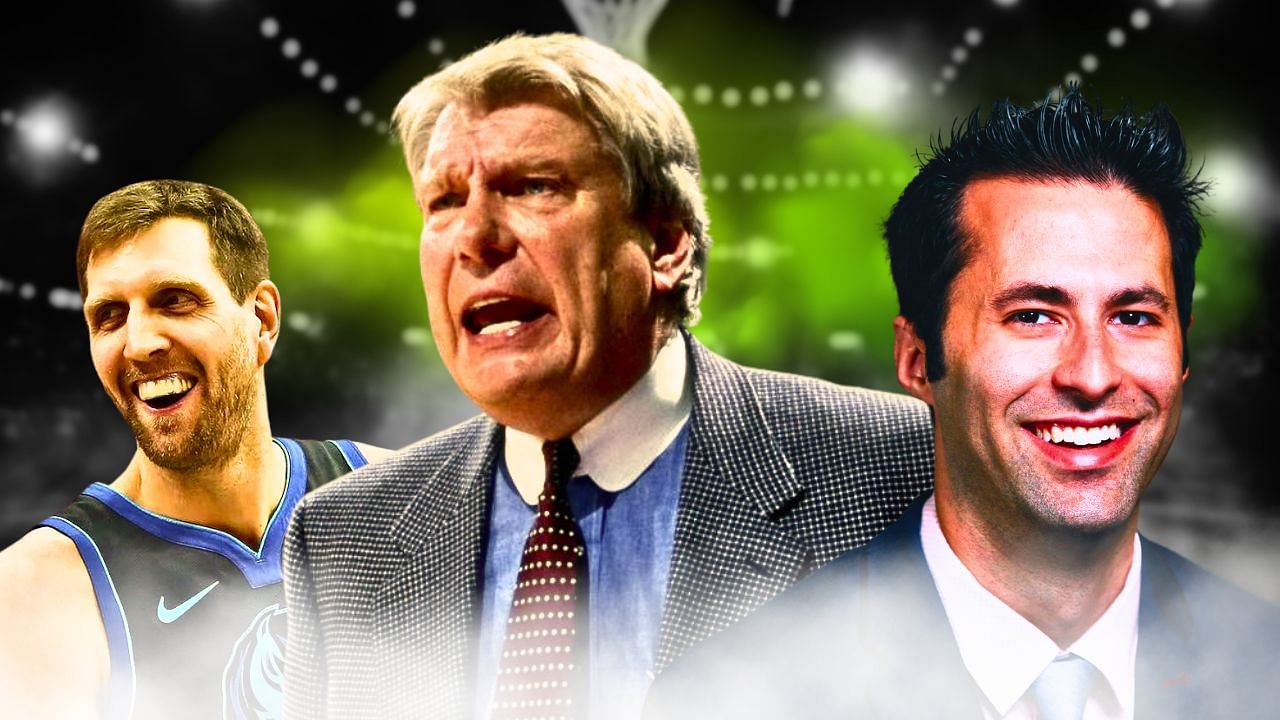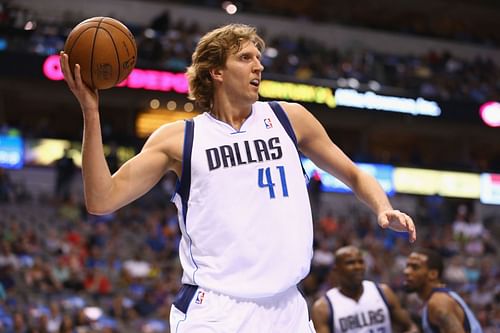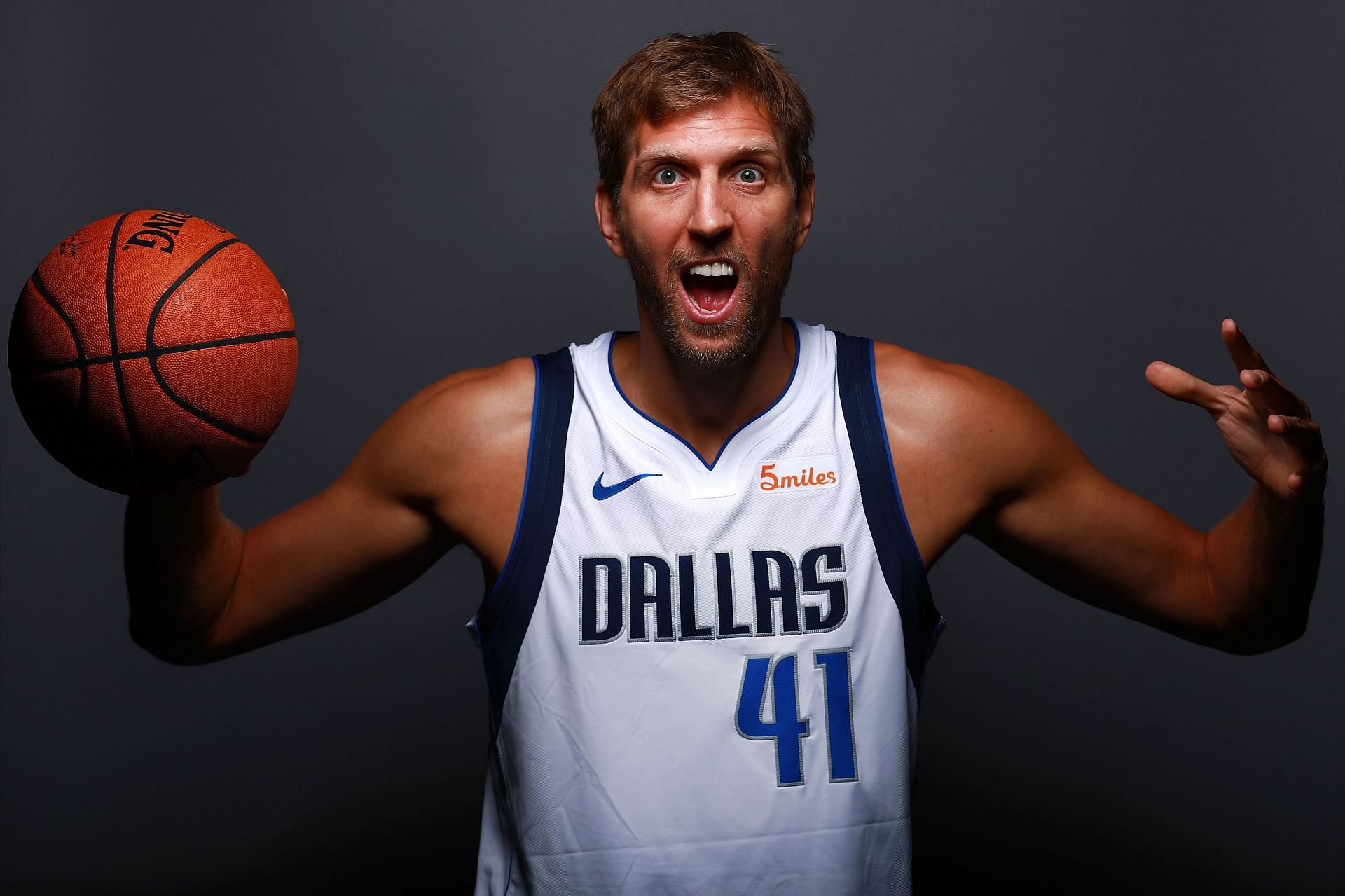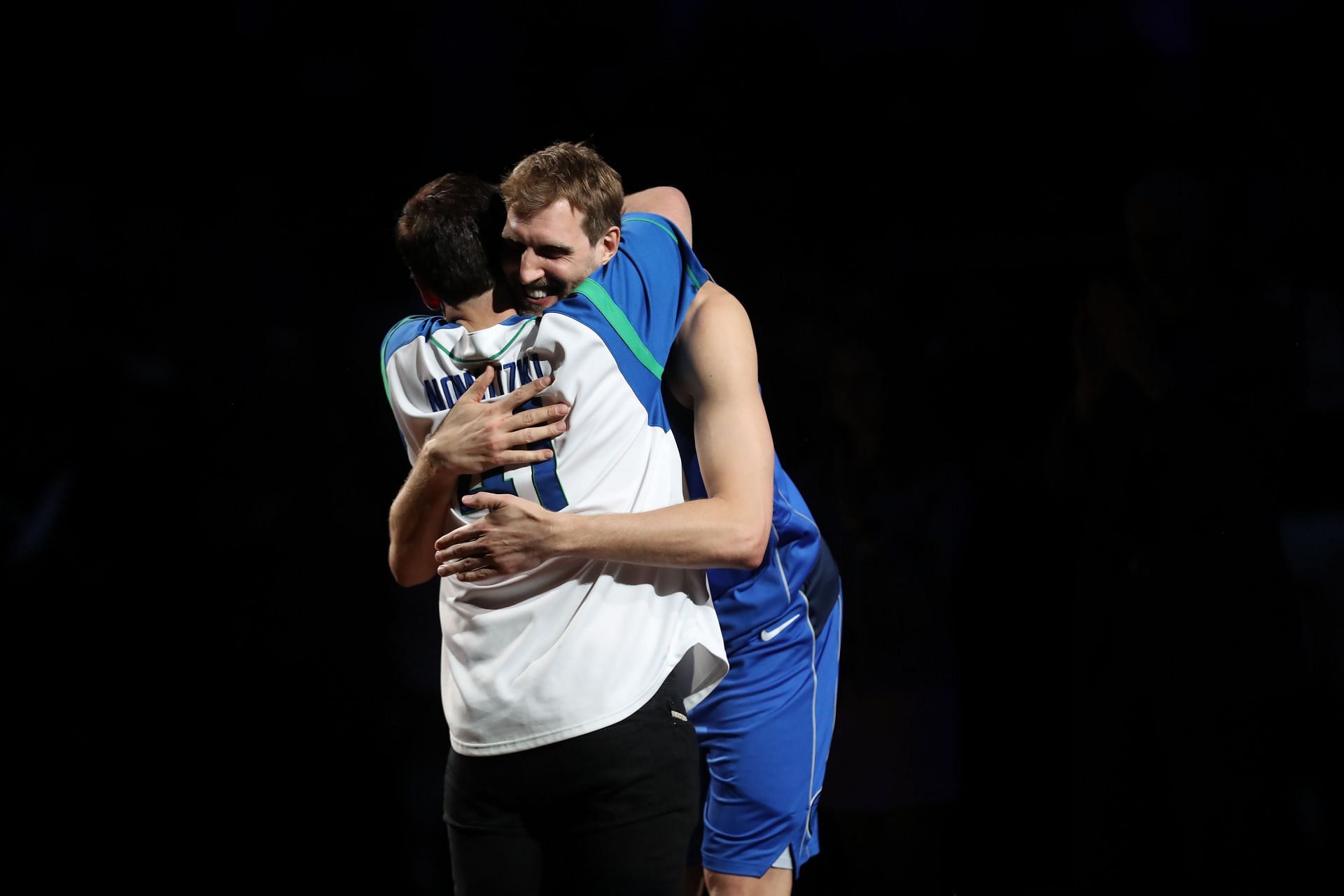
Exclusive: Don Nelson on picking between Dirk Nowitzki and Paul Pierce in the 1998 NBA Draft, being his 'American dad' and more
Well before he dazzled the Dallas Mavericks with his patented fadeaway, Dirk Nowitzki displayed those qualities at a closed gym in a local YMCA.
Then, former Mavericks coach/general manager Don Nelson and his son (Donnie) became convinced they should select Nowitzki in the 1998 NBA Draft.
“We were just amazed at the skill the guy had,” Nelson told Sportskeeda. Dirk was seven feet tall, but he played like a small forward. He was just dominant. I never saw a guy with that talent at 18 years old.”
With that talent, Nowitzki cemented a prolific 21-year NBA career with Dallas with an NBA title, 15 playoff appearances, and a sixth-place standing on the NBA’s all-time scoring list. That partly explains why the Naismith Memorial Basketball Hall-of-Fame will induct Nowitzki on August 12.
In a wide-ranging interview with Sportskeeda, Nelson reflected on Nowitzki about the Mavs’ efforts to secure Nowitzki in the 1998 NBA Draft, the Germany native’s initial struggles in the NBA, and why he felt strongly about sitting him with a knee injury during part of the 2003 Western Conference Finals.
Editor’s note: The following Q&A has been edited and condensed.
What do you remember about discovering Dirk?
“We went to visit Dirk before the draft. We went to Germany and spent three or four days with him and his family in Wurzburg. I got to meet his family and Dirk and understand his situation and what he was about to go through at age 18. I was trying to get to know everybody. His dad said something to me that I never forgot. He says, ‘If you guys draft Dirk, you’re going to be his American father.’ I can’t go. That’s really the way I tried to treat him. I tried to treat him as a son."

"During his first year, he went through some tough times. He got homesick and wanted to go home one time. We had to walk him through that and get him to stay. It’s like with a lot of kids when they go to camp for the first time and are away from home. They get a little homesick. I’ve had a lot of experience with young kids at camp that want to go home. The kids may cry for a day or so. You just have to work them through that. Dirk stayed the course and became one of the great players of all time. I couldn’t be any more proud of him.”
How did you try to be that ‘American father’ for him?
“Steve Nash was his best friend. Steve really helped with that. They would hang out and were both single at the time. Steve should get more credit than me. He was there for him and told him he would get through his first year. The team was going through some hard times, too. As Dirk matured, the team was maturing around him. We had some times when we lost a bunch of games that we shouldn’t have. But we all got together as a team and supported him. Steve spent more time with him, and then it worked out. After that first year under his belt, he was fine.”
You have said numerous times that when you first saw Dirk play, "you had never seen a young player with more skill." What did he show you at the Hoop Summit?
“Donnie [Nelson] told me how good he was. I witnessed it when I visited him and his family. We went to the gym a few times. I could see the talent there. Where I really got to watch him scrimmage against really good players was when he came to San Antonio to play a game that featured high school Europeans against the Americans. Donnie got in touch with that team. They were looking for a place to work out because they wanted to come a week early. Donnie got him to work out at the YMCA in Dallas, Texas. As they were working out, I went to the stands as high as I could. I watched the practices. We were just amazed at the skill the guy had. Dirk was seven feet tall, but he played like a small forward. He was just dominant. I never saw a guy with that talent at 18 years old.
"I was convinced that was the guy we were going to try to get. I liked Dirk and Paul Pierce as the best players in the draft that year. I would’ve taken either guy. The funny thing is I worked my way up and got ahead of Boston because we had heard that Boston wanted to take him. We also told his camp that we didn’t want anybody to interview him. We wanted to make sure we were the only ones that knew about him."
"We even tried to convince him not to even play in that San Antonio game. He had played and had played great. Now all of a sudden, the NBA had gotten word that the guy was a great player. Of course, they wanted to work him out personally. Donnie hid him in his basement at his house for a week. Nobody could find out where Dirk was (laughs). Boston wanted to interview him, but they didn’t know where he was. That kind of helped us."

"We were afraid if we didn’t get ahead of Boston that they were probably going to take him. We get to the draft and both he and Pierce are still available. Dirk was my favorite guy in the draft. But there they both were. I’m trying to make my decision. We’re on the clock, and they’re both available. I’m saying to Donnie, “Pierce is a terrific player.’ Donnie said, ‘Come on Dad; we’ve already been through all of this! Let’s make the choice. We know we’re taking Dirk!’ I said, “My God, you’re right.’"
"So we took Dirk ahead of Pierce. But Boston got a hell of a player, too. It’s funny the way things work out. The Milwaukee Bucks wanted “Tractor” Traylor. We had no interest in “Tractor” Traylor. So we swapped picks so they could get “Tractor” Traylor and then we thought Dirk would be available because we were ahead of Boston. We traded picks and I think they gave me a million dollars, too. We got our guy and it worked out perfectly.”
After Dirk got through the initial growing pains, what were the turning points you saw that projected how special of a player he would be?
“The only problem I had is he didn’t really have a good low-post game. He was 7 feet tall. As long as he played against other big guys, he would be open quite a lot. When they started matching up smalls against him and playing into him, then, of course, we put him in the low post. But he didn’t really have a low-post game. I wanted him to punish small players down there. I wanted him to be dominant, get to the basket, and get fouled. He just had the turnaround jump shot. I’m trying to get him to have a low-post game. My son, Donnie, said, ‘Dad, what are you doing all of that for? He makes every shot.’ I said, ‘Yeah, but he should be dominating and getting fouled more.’ He said, ‘Dad, he scores every time against these guys with his turnaround jump shot. Why don’t you just let him do that?’ I said, 'My God, you are right.' When we did post him up, Dirk would score on them with a jump shot.”
When Dirk had his knee injury in Game 3 of the 2003 Western Conference Finals against San Antonio, you expressed concern about the risk with playing him. How did you weigh that decision?
“That is the thing that wound up getting me fired years later. Mark Cuban wanted him to play. I watched Dirk work out and the guy couldn’t run. He had a dislocated kneecap. I just thought it might have a bearing on his future. I thought we shouldn’t take that risk. I sat him out for a couple of games and planned on playing him if we got to a seventh game. I thought maybe he would be ready to play by then. But until then, I stubbornly refused to play him. I didn’t want to take that risk with a guy’s career. He is so young. If we screw that knee up, he’s going to be playing with a brace for the rest of his career. It didn’t make any sense to me. So, I didn’t play him."
"I had the wrath from Cuban on that one for the rest of my career. We disagreed. The doctors thought he could play, but I watched him more than anybody. He just couldn’t do anything other than stand and shoot jump shots. That wasn’t going to work in the playoffs against San Antonio. They were going to make him move. I never asked Dirk how he felt about that. That would be a good question for Dirk. He wanted to play. But I said, ‘I’m not going to play him.’”

Marc Stein reported he has asked Dirk about it multiple times, and he has conceded he doesn’t think he could have played.
“There was no question in my mind that it was the right decision. But it ended up causing a rift between Mark and me, and eventually caused me to get fired probably for that reason.”
Interestingly, you then coached the “We Believe” Warriors team against Dirk and the Mavs and upset them in the first round of the 2007 playoffs. Stephen Jackson and Matt Barnes have credited your game plan on defending Dirk that series. What was the game plan?
“By coaching him, I knew his strengths and weaknesses, that’s for sure. We had a game plan for him. It worked pretty well. We made it hard on him. We gave him a tough series. We were jacked up just to be in the first. Then to beat the No. 1 team was pretty special. It was exciting for our locker room."
"In the first game, we’re right in the game. But I had some guys that were emotionally challenged. Jack got thrown out of the game. Baron Davis got thrown out of the game. But we only lost by four points. I told the team afterward that we can beat these guys. The next game in Dallas, we beat them. Then we eventually beat them in six. ‘We Believe’ solidified the franchise. It was something they were looking for for years – some excitement. We were able to do that. It was unbelievable.”
Why didn’t you get to go to Dirk’s jersey retirement?
“I didn’t go. I didn’t know they were having one. I never got an invitation. I would’ve been to that one. I wish I would’ve been there.”
Follow NBA writer Mark Medina on Twitter, Instagram, Facebook, and Threads